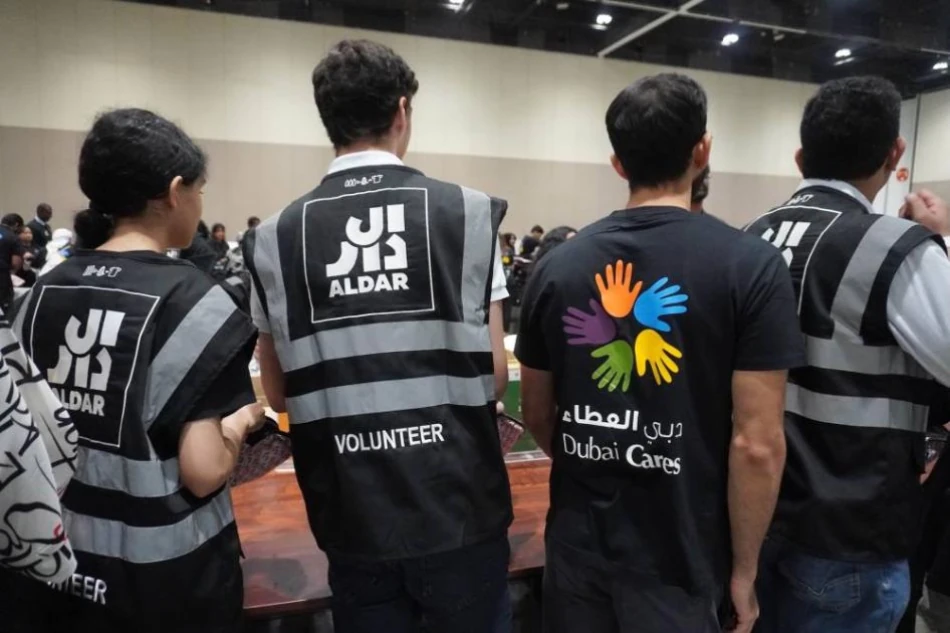
Empowering Underprivileged Students: 10,000 School Bags Distributed to Families in Need
UAE Corporate Giants Double Down on Education as "Year of Community" Takes Shape
Aldar Group and Dubai Cares are significantly expanding their strategic partnership to support students and schools across the UAE through major volunteering initiatives and infrastructure investments worth nearly 1.5 million dirhams in 2025 alone. The move reflects how the UAE's largest corporations are aligning their community investment strategies with the government's declaration of 2025 as the "Year of Community," signaling a broader shift toward systematic educational support.
Back-to-School Initiative Scales Up Amid Growing Need
Building on last year's success, the partnership will organize the "Back to School 2025" initiative on August 15 at Nabd Al Falah in Abu Dhabi. The event will mobilize 300 volunteers to prepare 10,000 school bags for distribution to students from low-income families across the Emirates, ensuring they start their academic year equipped with necessary tools and support.
This scale represents a significant commitment in a region where educational equity remains a priority despite the UAE's overall prosperity. The initiative addresses a practical gap: while the UAE boasts world-class educational infrastructure, ensuring universal access to basic school supplies requires sustained private-sector involvement.
Infrastructure Investment Expands Beyond Dubai
In a notable expansion, Aldar will support the renovation and development of a non-profit school in Abu Dhabi during 2025—marking Dubai Cares' first such project in the UAE capital. This follows the successful renovation of Al Ahliya Charitable Girls School in Dubai earlier this year, which significantly enhanced the school's learning environment.
The geographic expansion from Dubai to Abu Dhabi suggests a maturing approach to corporate social responsibility in the UAE, where major companies are moving beyond their immediate operational bases to create nationwide impact.
Corporate Strategy Meets National Vision
Salwa Al Muflahi, Executive Director of Sustainability and Community Engagement at Aldar Group, emphasized that providing quality education serves as the foundation for building thriving communities. She noted that the partnership extends beyond educational support to foster volunteering values and community responsibility spirit throughout the UAE.
Abdullah Ahmed Al Shehi, Chief Operating Officer at Dubai Cares, highlighted how the partnership embodies the spirit of the UAE's "Year of Community" while demonstrating the vital role of private sector collaboration with civil society organizations.
Strategic Implications for UAE's Development Model
The nearly 1.5 million dirham commitment represents more than corporate philanthropy—it signals how the UAE's development model increasingly relies on public-private partnerships for social outcomes. This approach mirrors successful models in Singapore and other developed economies where corporate community investment becomes integral to national development strategies.
Both initiatives fall under Dubai Cares' "Volunteering in the UAE" program, designed to inspire year-round community engagement supporting the education sector. This systematic approach to volunteering reflects a maturation of corporate social responsibility practices in the region, moving from ad-hoc charitable giving toward structured, measurable community investment.
Broader Context: Education as Economic Foundation
The partnership's focus on educational equity aligns with the UAE's broader economic diversification goals. As the country continues transitioning from oil dependence toward a knowledge-based economy, ensuring universal access to quality education becomes both a social imperative and economic necessity.
The initiative's emphasis on volunteering also addresses a growing recognition that sustainable development requires active citizen engagement, not just government or corporate funding. By mobilizing 300 volunteers for a single event, the program demonstrates how large-scale community mobilization can become routine rather than exceptional.
Most Viewed News

 Omar Rahman
Omar Rahman






